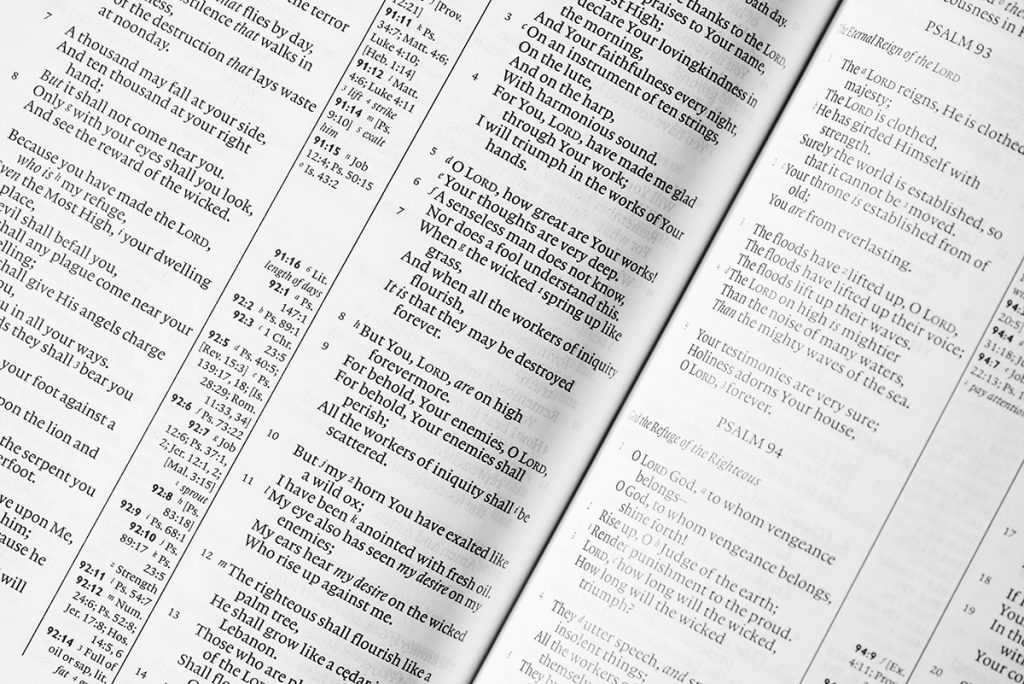Assembled here is a survey of each chapter in Leviticus. A few sentences for each chapter to summarize the core content and meaning of the third book of the Mosaic law. All twenty-seven chapters are put together here to assemble a coherent view of the Book of Leviticus as a whole. These summaries were not written from a historical, poetic, literal, or figurative interpretative view. These summaries are merely of content produced within the valid, authoritative, sufficient, infallible, and inerrant strength of God’s word.
Theme of Leviticus:
The Lord has set apart His people to be a holy nation. Yahweh provides a way to Him through sacrifice and a method by which His people walk with Him through their separation or sanctification.
Leviticus 1:
Burnt Offering – Instructions to Moses at the tent of meeting about how to conduct animal sacrifices. Specifically, burnt unblemished animal sacrifices at the altar. Bulls, sheep, goats, and birds. Symbolic of Romans 12:1. Shadow of Christ in offering (Eph 5:2, Heb 9:14).
Leviticus 2:
Grain or Meal Offering – Burnt offerings of flour, oil, and frankincense. Baked bread unleavened with oil permitted. No honey permitted. Food offerings to the Lord and portion to Aaron and priests. Shadow of Christ in offering (John 12:24). Christ was the Corn or grain of wheat.
Leviticus 3:
Peace Offering – Laying of hands onto the head of the goat to transfer sins of the people while the animal is sacrificed. Eating fat or blood is forbidden. Christ is our peace offering (Rom 5:1, Col 1:20).
Leviticus 4:
Sin Offering – Laying of hands onto the head of a bull. Unintentional sin of the people of Israel. Shadow of Christ in offering. Christ is our sin offering (2 Cor 5:21, 1 Pet 2:24).
Leviticus 5:
Guilt or Trespass Offering – Unintentional sins and sins of omission, careless words spoken, withholding evidence, or depraved indifference, there is an atonement through the sacrifice of a lamb, doves, or pigeons. If by poverty, flour is offered. Sin is forgiven. Shadow of Christ in the offering. Christ is our trespass offering (Col 2:13-14, 2 Cor 5:19).
Leviticus 6:
More specifics about the sins addressed by burnt offerings, grain offerings, and sin offerings. The priest’s activity and responsibility in their care and handling of the offerings.
Leviticus 7:
More specifics about trespass and peace offerings. Added priestly responsibilities. Forbidden consumption of fat and blood. Portions of sacrificial offerings designated to Aaron and his sons.
Leviticus 8:
As per the Lord’s instructions to Moses, he consecrates Aaron and His Sons.
Leviticus 9:
The Lord accepts Aaron’s offerings for himself and the people and his priestly ministry begins. The glory of the Lord appeared to the people and fire came from Him to consume the burnt offering.
Leviticus 10:
Aaron’s sons, Nadab and Abihu, bring profane fire before the Lord and He consumes them in fire. The Lord makes additional details clear about the conduct of His priests.
Leviticus 11:
Foods permitted to eat and distinctions between clean and unclean animals. Transferability of unclean (unholy) status from one being to another (animal to human).
Leviticus 12:
The purification after childbirth and differences between an unclean period between males and females. The process of sin offering to make atonement is presented after childbirth.
Leviticus 13:
Laws concerning leprosy. Method of identification and isolation of individual who exhibit disease or skin conditions. Laws about how to recover from ailment and cleansing. How to handle garments exposed to leprosy.
Leviticus 14:
Laws for cleansing lepers who were healed. Method of identification concerning clean and unclean households.
Leviticus 15:
Laws about bodily discharges and how to cleanse from various types among males and females to prevent contamination.
Leviticus 16:
The day of atonement involving sin offerings concerning Israel and Aaron. Tabernacle sanctification, the use of the scapegoat (Azazel), and the continued observance of the day of atonement.
Leviticus 17:
The placement of sacrificial offerings and their approach within the tabernacle. Further laws against the consumption of blood.
Leviticus 18:
Unlawful sexual relations including incest, homosexuality, adultery, and bestiality. Child sacrifice, or harm, to false gods forbidden.
Leviticus 19:
Laws concerning personal and social conduct. Do not bear grudges, or hatred for others. Do not fraud or cheat others. Judge righteously and do not curse or deal harshly with the deaf, poor, or disadvantaged. Sexual relations with slave women forbidden. Various additional laws concerning food, personal grooming, tattooing, prostitution of daughters, divination, strangers, and trade with merchants.
Leviticus 20:
Punishment for child sacrifice. Punishment for sexual immorality. More penalties concerning forbidden practices, or traditions of another nation. Sanctify yourselves and be holy.
Leviticus 21:
Various laws and holiness requirements concerning priests.
Leviticus 22:
Purity requirement of priests. Laws concerning the consumption of holy foods dedicated to priests. Food consumption of freewill offerings associated with gratitude.
Leviticus 23:
The sabbath requirement reiterated. Persistent ceremonies involving feasts to represent a holy separate to walk with God. Specific about the Passover ceremony, feast of first fruits, feast of weeks, and feast of Trumpets. Holy convocation involving blowing of trumpets. Feast during the day of atonement, and the feast of booths (tabernacles / tents).
Leviticus 24:
Role of children to gather or produce oil for the lamps. Preparation of show bread for the tabernacle. Death penalty for blasphemy. An eye for an eye (equal administration of law).
Leviticus 25:
The seventh year of sabbath rest for the land. The fiftieth year of jubilee prescribed. Requirements concerning the redemption of property and the poor. Further instruction concerning trade among merchants and sojourners. Demonstrated kindness for poor brothers.
Leviticus 26:
Blessings and rewards for obedience. Severe punishments for disobedience. The Lord will remain faithful, He will remember His people and will not completely abandon them.
Leviticus 27:
Laws about vows, things devoted to the Lord, and tithes.
















Comments are closed.